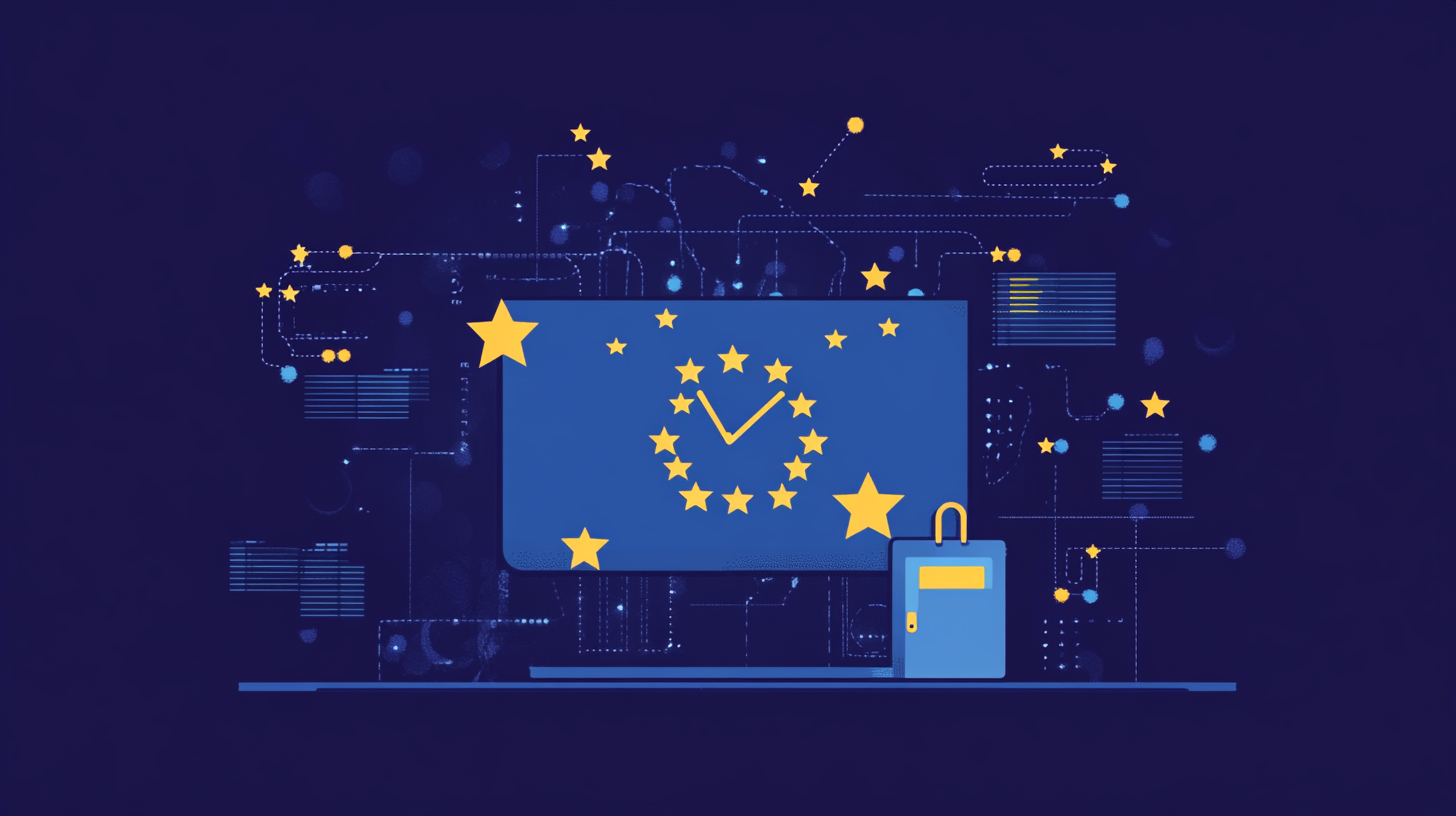GDPR compliance with Azure data protection and privacy regulations

In today's digital world, data protection is of paramount importance. In 2021, the cost of data breaches soared to $4.24 million, with 22 billion records compromised. These incidents underscore the critical need for strong security measures. The General Data Protection Regulation (GDPR) establishes a global benchmark for privacy, affecting organizations around the globe. In the United States, companies often invest over $500,000 to achieve GDPR compliance. Cloud services such as Azure are vital in ensuring adherence to privacy regulations. Azure data protection provides tools and features that enable organizations to effectively safeguard personal information.
Understanding GDPR Compliance
Key Principles of GDPR
Lawfulness, fairness, and transparency
Organizations must adhere to the principles of lawfulness, fairness, and transparency. These principles ensure that data processing respects individual rights and complies with legal standards. Companies must provide clear information about data collection and usage. Transparency builds trust and ensures accountability.
Data minimization and accuracy
Data minimization and accuracy are crucial for GDPR compliance. Organizations should collect only necessary data for specific purposes. Accurate data enhances decision-making and reduces risks. Regular updates and corrections maintain data integrity.
Rights of Data Subjects
Right to access
The right to access empowers individuals to obtain information about their personal data. Organizations must provide details on data processing activities. This right ensures transparency and fosters trust between companies and consumers.
Right to erasure
The right to erasure allows individuals to request the deletion of their personal data. Organizations must comply with such requests under specific circumstances. This right supports privacy and gives individuals control over their information.
Azure's Role in Data Protection

Azure Security Features
Encryption and Key Management
Azure offers robust encryption services to safeguard data both in transit and at rest. Azure Key Vault manages cryptographic keys and secrets, ensuring data protection through secure key management. Organizations can encrypt sensitive information using industry-standard protocols such as TLS and SSL. These protocols provide a secure channel for data transmission between Azure services and clients. Azure's encryption capabilities form a critical layer of defense, helping organizations meet stringent data protection standards.
Threat Detection and Response
Azure Security Center provides advanced threat detection and response capabilities. This tool offers unified security management across hybrid cloud environments. Azure Security Center continuously monitors resources, identifying potential security threats. The system provides actionable recommendations to mitigate risks and enhance security posture. Microsoft Defender for Cloud integrates with Azure Security Center, offering increased visibility into security threats. Organizations can detect and respond to threats quickly, minimizing potential damage.
Compliance Tools in Azure
Azure Policy
Azure Policy helps organizations enforce compliance with GDPR requirements. This tool enables the application of security policies across workloads. Azure Policy ensures that resources adhere to established security standards. Organizations can configure policies to limit exposure to threats and enable encryption. Azure Policy plays a vital role in maintaining a secure and compliant environment.
Compliance Manager
Compliance Manager assists organizations in achieving GDPR compliance. This tool provides a comprehensive assessment of compliance status. Organizations can track progress and identify areas needing improvement. Compliance Manager offers detailed reports and insights, supporting informed decision-making. By leveraging Compliance Manager, organizations can streamline their compliance efforts and ensure adherence to data protection regulations.
Implementing GDPR with Azure
Step-by-Step Guide
Assessing current compliance status
Organizations must first evaluate their existing data protection measures to achieve GDPR compliance. This assessment identifies gaps in data handling processes and security protocols. Azure provides tools that facilitate this evaluation. Azure Compliance Manager offers a comprehensive assessment of an organization's compliance status. This tool delivers insights into areas requiring improvement. Organizations can use these insights to prioritize actions and allocate resources effectively.
Configuring Azure services for GDPR
After assessing compliance status, organizations should configure Azure services to align with GDPR requirements. Azure Information Protection plays a crucial role in safeguarding sensitive information. This service classifies and protects data based on its sensitivity. Organizations can apply labels to documents and emails, ensuring appropriate access controls. Encryption services within Azure further enhance data security. Azure Key Vault manages cryptographic keys, providing secure key management. Access controls in Azure ensure that only authorized personnel can access sensitive data. These configurations create a robust framework for GDPR compliance.
Real-World Applications
Case studies of successful compliance
Case Study: Healthcare Provider
A leading healthcare provider used Azure's tools to achieve GDPR compliance. The organization leveraged Azure Information Protection to classify patient records. This classification ensured that only authorized staff accessed sensitive information. Azure's encryption services protected data both in transit and at rest. The healthcare provider built a culture of trust and privacy by aligning with GDPR requirements.
Case Study: Financial Institution
A prominent financial institution utilized Azure's capabilities to secure customer data. Azure Key Vault managed cryptographic keys, ensuring secure transactions. Azure Policy enforced compliance across the institution's cloud environment. This approach demonstrated dedication to protecting data privacy for users in the European Union.
Lessons learned and best practices
Successful implementations of GDPR compliance with Azure reveal valuable lessons. Organizations should prioritize data classification and encryption. These measures protect sensitive information from unauthorized access. Regular assessments of compliance status help identify areas needing improvement. Azure's tools provide actionable insights that support informed decision-making. Building a culture of trust and privacy enhances customer relationships and fosters innovation. Organizations should continuously update their data protection strategies to adapt to evolving regulations.
Future Outlook
Evolving Privacy Regulations
Anticipated changes in GDPR
Privacy regulations continue to evolve, reflecting the dynamic nature of data protection. Anticipated changes in GDPR may introduce stricter guidelines for data processing and storage. These changes aim to enhance user privacy and ensure robust data security measures. Organizations must stay informed about these developments to maintain compliance.
Impact on cloud services
Changes in GDPR will significantly impact cloud services. Providers like Azure must adapt to new regulations to ensure continued compliance. Azure's proactive approach positions it well to handle these changes. The platform's comprehensive suite of tools supports businesses in navigating evolving privacy landscapes. Azure's commitment to security and compliance makes it a reliable choice for organizations.
Azure's Continuous Improvement
Upcoming features and updates
Azure consistently enhances its offerings to align with privacy regulations. Upcoming features focus on strengthening data protection and user privacy. These updates aim to provide advanced security measures and improved compliance tools. Azure's dedication to innovation ensures that organizations have access to cutting-edge solutions.
Commitment to privacy and security
Azure demonstrates a strong commitment to privacy and security. Certifications such as ISO/IEC 27001 and ISO/IEC 27701 validate this dedication. Regular third-party audits reinforce Azure's position as a trusted provider. Azure's focus on privacy-by-design principles ensures robust data protection. This commitment supports organizations in achieving GDPR compliance and protecting user data.
Azure's capabilities in ensuring GDPR compliance stand out as a robust solution for organizations. Azure provides a comprehensive suite of tools and services designed to facilitate GDPR compliance and data protection. Azure Policy plays a crucial role in enforcing GDPR compliance within organizations using Azure services. Azure's commitment to compliance and security standards makes it a trusted platform for organizations aiming to excel. Staying updated with privacy regulations remains essential. Organizations should leverage Azure's rich toolbox tailored for GDPR compliance to take charge of their privacy journey.
See Also
Cloud Ethics: Ensuring Azure AI Compliance
Managing Azure Policy for Cloud Compliance
Protecting Cloud Workloads: Azure Security Best Practices
